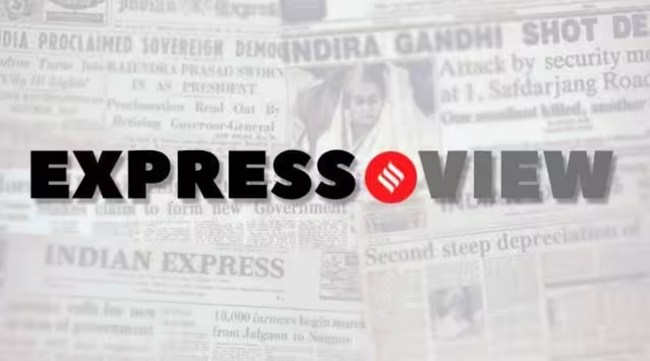Opinion Express View on SC’s direction to SBI on electoral bonds: Fuller disclosure
SBI should not wait for Court to prod it, parties must step forward to place more information on electoral bonds in public domain
 Some political parties have taken a step forward towards providing information on bonds. Reportedly, 10 parties, including the DMK, NCP, JD(U) and AAP, have voluntarily disclosed the names of their donors.
Some political parties have taken a step forward towards providing information on bonds. Reportedly, 10 parties, including the DMK, NCP, JD(U) and AAP, have voluntarily disclosed the names of their donors. The data on electoral bonds released by the State Bank of India must provide clarity on questions that are at the heart of the effort to bring transparency in political funding. It should give information on all the entities, companies and/or individuals, who purchased electoral bonds, which parties received them, and the link between the two — that is, who paid whom. The disclosures so far by the SBI, however, have only provided information on the donors who purchased the bonds and the parties that received them — the question of who paid whom remains unanswered.
This information gap can be filled, firstly, by the State Bank of India furnishing data on the bond’s unique alphanumeric code and serial number — not provided so far by the bank. On Monday, the Supreme Court asked the SBI to disclose these numbers for the bonds purchased and redeemed to the Election Commission. The Court has also asked the Chairman and Managing Director of the SBI to file an affidavit by March 21 stating that all information regarding the bonds has been disclosed. The court’s continued push to ensure complete transparency is immensely welcome. But having said that, the SBI should now disclose all the information it has and not wait for the Court’s prodding.
Some political parties have taken a step forward towards providing information on bonds. Reportedly, 10 parties, including the DMK, NCP, JD(U) and AAP, have voluntarily disclosed the names of their donors. For instance, Future Gaming and Hotel Services — the biggest purchaser with over Rs 1,300 crore worth of bonds between 2019 and 2024 — donated Rs 509 crore or just under 40 per cent of its total purchases to the DMK. Megha Engineering and Infrastructure Ltd — the second largest purchaser of bonds — gave Rs 50 crore to JD(S). This was more than half of what the party received through this channel. Other parties must now take the cue and place more information in the public domain. At this moment, the onus is on parties to rise above short-term calculations and considerations and take forward the process started by the Court — of shining light on areas of darkness in a system that is mostly opaque.
The system of electoral financing in India is in dire need of reform, keeping at its centre the voter’s right to know. This valuable opportunity must not be lost. But even full disclosures on electoral bonds cannot be the end of the matter. The next step will need to be taken — to set in place a more open system to replace the electoral bonds scheme struck down by the Court. There can be no going back to the earlier system. Conversations must begin on bringing in systemic changes and they must involve all stakeholders and parties.





